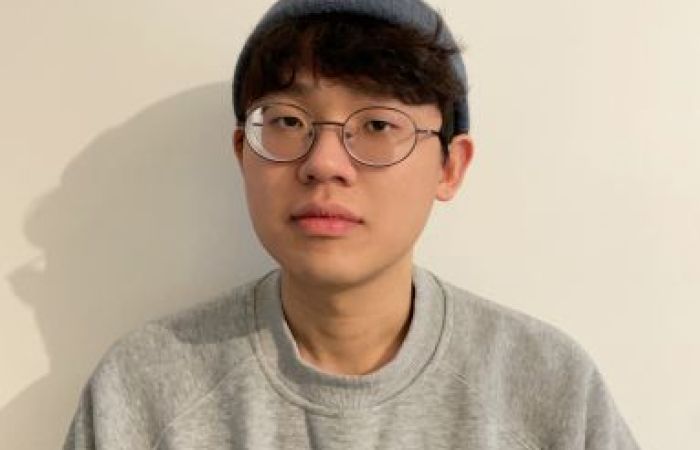Dr Feiteng Long
Job Title
Research Fellow

Room number
2.03, 2F2Street (Address)
18 Buccleuch PlaceCity (Address)
EdinburghCountry (Address)
UKPost code (Address)
EH8 9LNResearch interests
Research interests
With a goal to address conflicts between groups and a curiosity about how individuals cope with societal changes, my research explores the social and psychological processes underlying intergroup relations and social change. I have developed three interconnected lines of research.
1. Norm Messages and Intergroup Relations
My primary research investigates how norm messages can foster positive intergroup relations and promote social change, particularly for migrants and LGBT+ groups. In my PhD research and a project supported by the KLI Seedcorn Grant, I have examined how norms can reduce prejudice, mobilise collective action, mitigate polarisation within social networks, and influence physiological threat/challenge responses.
2. Reactions to Social Change
Expanding beyond normative processes, my second line of research focuses on individuals' responses to social change. Using experimental and social media data, I have examined the roles of allies and the strategic use of intergroup emotions in collective actions in enhancing support for change and mitigating intergroup polarisation.
3. Economic Inequality and Its Consequences
My third line of research examines the political and moral consequences of economic inequality, including leader preferences, indifference to politicians, and moral judgements.
Current Focus: Psychophysiology of Social Change
My recent focus has been on employing a psychophysiological approach to explore the "heart" of societal changes. For example, when social change is perceived as uncontrollable or overwhelming, a threat state (indicated by constriction in arteries and less blood pumped by the heart) may be aroused. In contrast, perceiving change as empowering or promising can induce a challenge state (marked by dilation in arteries and more blood pumped by the heart). I aim to collect cardiovascular and skin conductance data in both lab and field settings to gain insights into motivational processes underlying individuals' responses to social change.
Background
I am a postdoctoral research fellow at the Neuropolitics Research Lab, the University of Edinburgh. I hold a PhD in Social, Economic, and Organisational Psychology from Leiden University. Before that, I completed a master's degree in Comparative Public Policy at the University of Edinburgh.
Works within
Publications by user content
| Publication | Research Explorer link |
|---|---|
|
Long F, Pliskin R, Scheepers D. Leftists and rightists differ in their cardiovascular responses to changing public opinion on migration. Psychophysiology. 2025 Sept;62(9):1-13. e70140. Epub 2025 Sept 4. doi: 10.1111/psyp.70140 |
View |
|
Long F, Ye Z, Luo L. When allies join the fight: How joint collective action shapes social change and intergroup relations. Journal of Experimental Social Psychology. 2025 Nov;121:1-18. 104811. Epub 2025 Aug 11. doi: 10.1016/j.jesp.2025.104811 |
View |
|
Long F, Ye Z, Liu G. Who considers migrants' competent traits important? The role of political ideology. Personality and Individual Differences. 2025 Jul;240:1-6. 113134. Epub 2025 Mar 5. doi: 10.1016/j.paid.2025.113134 |
View |
|
Long F, Ye Z. Who values competent minds and who likes warm hearts? The role of right-wing authoritarianism and social dominance orientation in shaping voter preferences for political candidates. British Journal of Social Psychology. 2025 Jul;64(3):1-20. e70004. Epub 2025 Jul 6. doi: 10.1111/bjso.70004 |
View |
|
Long F, Ye Z, Luo L. Who considers migrants' competence important? The role of political ideology. Personality and Individual Differences. 2025 Nov;246:1-7. 113272. Epub 2025 Jun 9. doi: 10.1016/j.paid.2025.113272 |
View |
|
Long F, Ye Z, Luo L. Joint collective action increases support for social change and mitigates intergroup polarisation: A registered report. Journal of Experimental Social Psychology. 2025 May;118:1-11. 104732. Epub 2025 Feb 1. doi: 10.1016/j.jesp.2025.104732 |
View |
|
Long F, Scheepers D, Zingora T, Pliskin R. The network dynamics of antiprejudice norms: A field experiment testing antiprejudice interventions in real groups. Political Psychology. 2025 Apr 28;1-26. Epub 2025 Apr 28. doi: 10.1111/pops.70029 |
View |
|
Çakmak H, Mang V, Long F. “Who Islamises us?”: Does political ideology moderate the effects of exposure to different Great Replacement Conspiracy explanations on radical collective action against different targets? British Journal of Social Psychology. 2025 Apr;64(2):1-22. e12852. Epub 2025 Feb 11. doi: 10.1111/bjso.12852 |
View |
|
Long F, Çakmak H. How ingroup norms of multiculturalism (and tolerance) affect intergroup solidarity: The role of ideology. British Journal of Social Psychology. 2024 Oct;63(4):2200-2224. Epub 2024 Jun 19. doi: 10.1111/bjso.12778 |
View |
|
Long F, Pliskin R, Scheepers D. Norms of equality reduce prejudice towards migrants, but only among conservatives. Journal of Community and Applied Social Psychology. 2024 Jul;34(4):1-20. e2836. Epub 2024 Jul 3. doi: 10.1002/casp.2836 |
View |
|
Long F, Ye Z, Liu G. Economic inequality reduces preferences for competent leaders. Personality and Social Psychology Bulletin. 2024 Mar 22;1-16. Epub 2024 Mar 22. doi: 10.1177/01461672241235381 |
View |
|
Ye Z, Long F, Gao J, Zheng H, Meng X. How epidemic information and policy information impact anti-infection behaviors: A cross-cultural study under social influence framing. Journal of Social Psychology. 2024;164(4):433-446. Epub 2022 Jul 25. doi: 10.1080/00224545.2022.2095967 |
View |
|
Long F, Ye Z, Liu G. Intergroup threat, knowledge of the outgroup, and willingness to purchase ingroup and outgroup products: The mediating role of intergroup emotions. European Journal of Social Psychology. 2023 Mar;53(2):268-287. Epub 2022 Oct 30. doi: 10.1002/ejsp.2902 |
View |